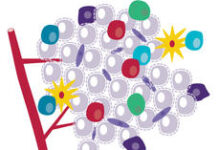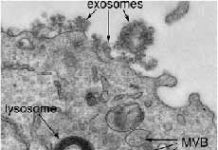Breast cancer is on the rise among younger women.
According to a study published in the Journal of the American Medical Association, there has been a 2% annual increase in invasive breast cancer in U.S. women under 40 over the last three decades.
A second study by the American Cancer Society shows that invasive breast tumors in women under 45 years old increased by 11.8% between 2007 and 2011 alone.
That’s some scary stuff to think about, especially since many women are not urged to get mammograms until age 40 or beyond.

This year, the American Cancer Society estimates:
- About 287,850 new cases of invasive breast cancer will be diagnosed in women.
- About 51,400 new cases of ductal carcinoma in situ (DCIS) will be diagnosed.
- About 43,250 women will die from breast cancer

Unfortunately, progression is generally more aggressive when the disease strikes women at young ages, with mortality rates more than 40 percent higher than in older patients.
Many women who are at risk for cancer have questions about what they can do to prevent the disease’s development. In this video, Joan Lunden’s oncologist takes the time to help women learn more about the disease.
Carolyn Pollex asked, “Why are so many young woman in their 20’s and 30’s getting breast cancer? Stress, lifestyle, genetics, environment?”

Dr. Ruth Oratz replied with, “I think it is all of the above.”
She went on to talk about genetics and said, “Women who have a genetic predisposition for breast cancer, we are seeing it now at a younger age.” So what is the change?! Dr. Oratz believes it is diet.

Doctors believe it is not the food that people are currently eating as much as what they ate as children. “Maybe what is in our food is different. Antibiotics and hormones in the poultry, meat and dairy products.” This is something that researchers are starting to look at, if in the increase in hormones is impacting a woman’s body and increasing her risk of breast cancer.
Dr. Oratz ended the interview by suggesting parents think about what they are feeding their young children and encourage them to be active.

These facts should make you feel more comfortable knowing about breast cancer and what can be done to treat and prevent it.
Watch the full interview in the video below.
Whether you are a woman over 40 who has a daughter, niece, grandchild or other young relative, or if you’re a young woman yourself, you can make a difference in slowing down this disturbing statistical trend. Until there is a cure, prevention and awareness are our most powerful weapons.
Take the pledge today: Commit to raising awareness about these five proven ways every woman can lower her risk of being faced with a battle against breast cancer.
![]()
Provide Mammograms
Support those fighting Breast Cancer at The Breast Cancer Site for free! →
Whizzco Source







